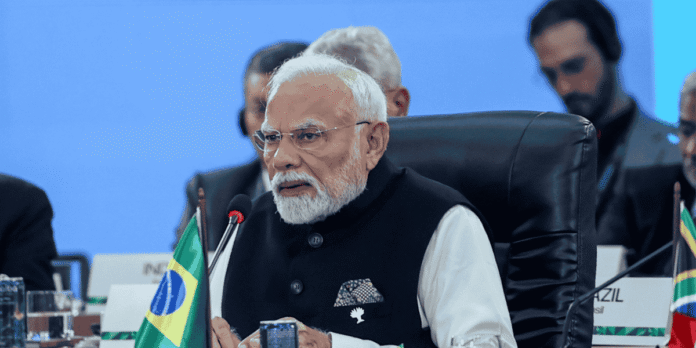Prime Minister Narendra Modi on Friday underscored the strength of India-Japan economic ties, saying that with renewed efforts, both nations can diversify their trade basket, make it more balanced, and unlock new areas of cooperation.
In an interview with Japanese newspaper The Yomiuri Shimbun, Modi called for greater ambition in bilateral relations. “The synergies across governments, businesses and people can create scale and speed in our economic partnership. As the world’s leading economies, we have been contributing to each other’s growth, competitiveness and dynamism,” he said.
Japan has long been central to India’s infrastructure growth and continues to be a leading source of foreign direct investment (FDI) in sectors including automobiles, electronics, telecom, chemicals, finance, and pharmaceuticals. The Prime Minister highlighted that nearly 1,500 Japanese firms now operate in India, while more than 400 Indian companies have set up operations in Japan.
“Clearly, this is only the beginning, the real potential is much higher,” Modi said, while noting that trade relations are still below the levels envisaged under the Comprehensive Economic Partnership Agreement (CEPA). “The 20th century saw Japan emerge as a major partner in India’s infrastructure development. I am confident that the 21st century will see Japan as a major partner in India’s innovation, manufacturing, and global value chains,” he added.
On semiconductors, Modi said India is witnessing a sectoral transformation. “We have put in place a comprehensive regulatory and policy framework, backed by incentives, to build a strong semiconductor and display ecosystem. Already, six semiconductor units are taking root in India, with four more on the way. By the end of this very year, ‘Made in India’ chips will be in the market, a clear demonstration of India’s design and manufacturing capabilities,” he noted.
He stressed that Japanese firms, with their technological expertise, could play a pivotal role. “By combining India’s scale and capabilities with Japan’s advanced technologies, we can build a resilient and trusted semiconductor value chain,” he said, adding that such cooperation would boost both countries’ technological ambitions while enhancing global supply chain security.
Calling semiconductor collaboration a “major pillar” of the India–Japan partnership, Modi underlined its strategic value. “In this digital century, chips are not just about computers, they are about competitiveness, credibility and confidence in the future,” he remarked.
The Prime Minister also highlighted how some Japanese firms are positioning India as a hub for third-country markets such as Africa. He pointed to India’s reform-driven business environment, reduced compliance burdens, incentives for investors, and a large skilled workforce — as reasons global companies, including Japanese ones, are increasingly setting up manufacturing bases in India.
Japanese automaker Suzuki Motor Corporation recently announced an investment of ₹70,000 crore in India over the next five to six years. The funds will be used to expand production, introduce new models, and consolidate its dominance in the world’s third-largest automobile market.
“Just a couple of days back, I was at the Suzuki plant in India where we flagged off electric vehicles to be exported to a hundred countries, including Japan,” Modi said, highlighting the growing scale of bilateral industrial ties.





